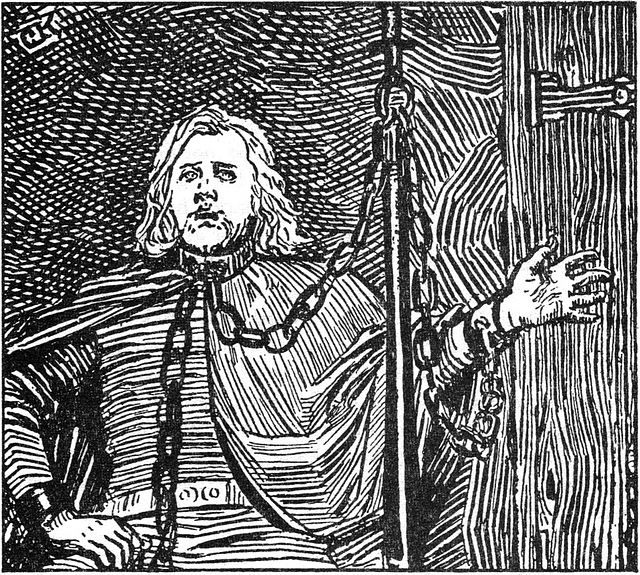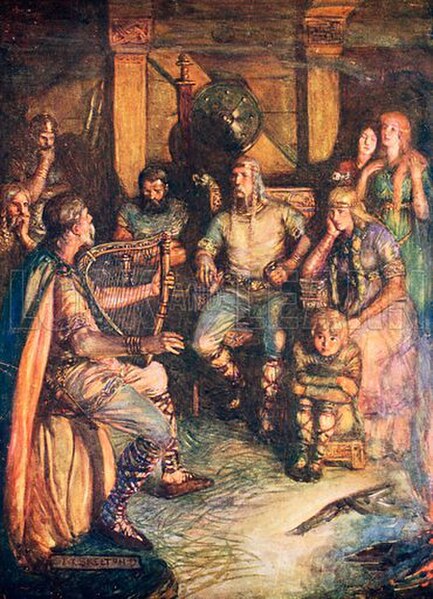Bragi Boddason, known as Bragi the Old was a Norwegian skald active in the first half of the 9th century, the earliest known skald from whom verses have survived. Portions of his Ragnarsdrápa are preserved in Snorri Sturluson's Edda.
Drawing of Bragi by Carl Wahlbom
A skald, or skáld is one of the often named poets who composed skaldic poetry, one of the two kinds of Old Norse poetry in alliterative verse, the other being Eddic poetry. Skaldic poems were traditionally composed to honor kings, but were sometimes extempore. They include both extended works and single verses (lausavísur). They are characteristically more ornate in form and diction than eddic poems, employing many kennings, which require some knowledge of Norse mythology, and heiti, which are formal nouns used in place of more prosaic synonyms. Dróttkvætt metre is a type of skaldic verse form that most often use internal rhyme and alliteration.
Bersi Skáldtorfuson, in chains, composing poetry after he was captured by King Óláfr Haraldsson (illustration by Christian Krohg for an 1899 edition of Heimskringla)
A minstrel sings of famous deeds by J. R. Skelton, c. 1910
Illustration from the 18th-century Icelandic manuscript NKS 1867 of Thor's fight with the World Serpent, the subject of early skaldic verses by Bragi Boddason and Úlfr Uggason
Snorri Sturluson, illustration by Christian Krohg (1899)





